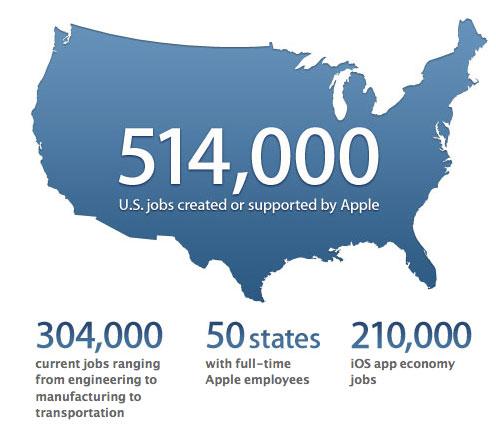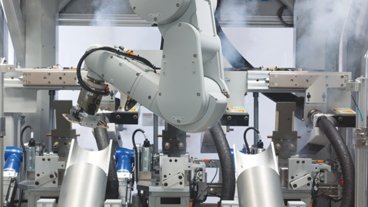Tim Cook: "I want there to be" American-made Apple products
When asked by All Things Digital co-host Kara Swisher, "Why isn't there an Apple factory in China, run by Apple?" Cook answered, "We decided a decade ago that there were some things we could do ourselves better than anyone.
"But other things," Cook continued, "we decided we shouldn't put our own efforts into. Manufacturing was one of those. With manufacturing, we looked at it and said that someone else could do it better."
Walt Mossberg then asked Cook, "There's been a lot of talk recently about reviving manufacturing here in the U.S. You used to have a factory, I think in Colorado. You're probably the most influential company in technology, and you're an operations expert — will there be an Apple product ever made again in America?"
Cook emphatically answered, "I want there to be! I want there to be!"
He then noted that "the [ARM semiconductor] engine for the iPad and iPhone are built in the U.S., in Austin, Texas. The [Corning] glass for your iPhone (sold worldwide) is made in Kentucky."
Cook then acknowledged, "there's an intense focus on the final assembly. Could that be done in the U.S.? I sure hope so. But look, how many tool-and-die makers do you know in America? I could ask them, nationwide, to come here tonight and we couldn't fill [a few hundred seats in] this room," noting that in China, tool-and-die makers fill cities.
"We will do as many of these things [in America] as we can do," Cook added, "and you can bet that we'll use the whole of our influence to do this."
"Will I ever buy an iPhone that on the rear, it says 'Made in California'?" Mossberg asked.
"It may, it may! I mean, you could say now that 'some parts are made in America,'" Cook said, reiterating processor and glass components before talking about software, and how much the "app economy" has blossomed in the US following the debut of the iPhone.
Cook's enthusiasm and optimism regarding the potential of a resurgence in American manufacturing comes in stark contrast to the matter of fact answers Steve Jobs provided just over a year ago.
When asked similar questions about the potential for U.S. assembly by US President Barack Obama, Jobs reportedly stated, "Those jobs aren't coming back."
In March, Apple began publishing figures outlining how many jobs the company was creating within the U.S. outside of final assembly, claiming that 514,000 people are employed in the States because of Apple.
Echoing Cook's mention of new mobile development jobs, the company cited a 2012 study by TechNet that found that 466,000 jobs have been added to the U.S. economy related to mobile development.
Visit AppleInsider's D10 archive for more of Cook's comments and ongoing coverage of the conference.
 Daniel Eran Dilger
Daniel Eran Dilger












 Andrew Orr
Andrew Orr
 Wesley Hilliard
Wesley Hilliard
 Amber Neely
Amber Neely

 William Gallagher
William Gallagher

 Malcolm Owen
Malcolm Owen








